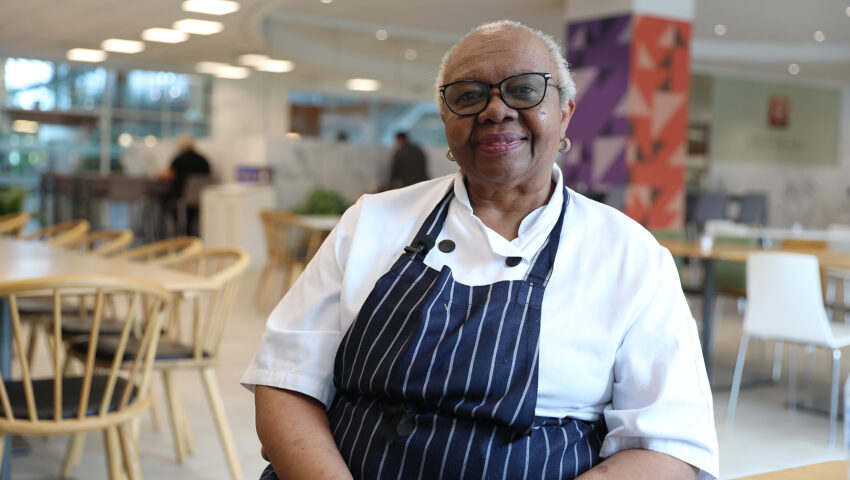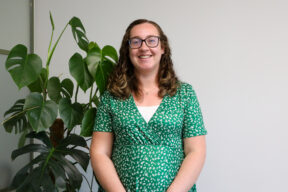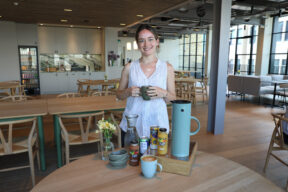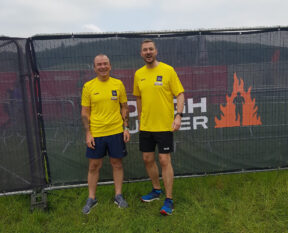Blogs
Saluting our sisters – Eugenia shares her moving story

This Black History Month, we want to recognise what it was like living in an era of permanent racism and discrimination, how we have moved on and what we still need to do.
Our teams play a big part in driving positive culture. Creating an inclusive and diverse workforce is a big part of this. Like everything in life, there is always room to learn and grow.
Recently, I had the honour of learning more about one of our influential team members, Eugenia.
Meet Eugenia: a pillar of strength in the #BMfamily💜💚
It was Eugenia’s 80th birthday a couple of weeks ago. For those of you who don’t know Eugenia, she is a valued member of the #bmFamily💜💚 and one of the most gracious and wisest women I have had the honour of meeting.
Childhood in 1940s Massachusetts: a dark tale of discrimination
In the first 8 years of Eugenia’s life, she grew up in Massachusetts. It was back in the 1940s when there were very clear, negative communications that defined what black people could and couldn’t do. It was legal to be racist.
Eugenia reflects vividly of her experiences; one she recalls, was the day before she was set to escape Massachusetts for Barbados. In that era it was illegal for Black people to leave their home. The day before she was due to leave, she went to visit her two aunties in Manhattan. It was a hot day, and they were travelling on a busy bus; standing because seats were only reserved for white people. Her aunties were thirsty. Once off the bus they noticed a public water fountain, so they naturally rushed over to wet their parched mouths. Eugenia wasn’t in so much of a hurry, so she hung back. In the blink of an eye, her aunties were shot dead right in front of her. The officer responsible just walked away leaving Eugenia screaming in disbelief. As it transpired, her aunties were drinking from a ‘white only’ water fountain!
The journey to Barbados: a family’s fight for freedom
Eugenia was only eight years old when this happened. If witnessing such an atrocity wasn’t enough, Eugenia, along with her parents and brother had to swim on their backs through long grass swamp water in the dead of night, using hollow grass as a snorkel. They had to swim slowly and consciously because as soon as a light shone on them from the guards patrolling the water, any ripple witnessed would have encouraged the guards to shoot at the water.
Through a close friend, Eugenia’s father had organised a boat to take them to Barbados. When the family reached the boat, they travelled for two days hidden under a blanket.
Once she reached Barbados Eugenia experienced plantations and having to work for white British men known as plantation ‘masters’. Although there was still suppression, she didn’t experience the same discrimination as she did in America.
Life in the UK: a struggle but a step forward
When Eugenia was 20 she decided she wanted to study to be a nurse so chose to move to the UK. This is something she was permitted to do as Barbados was part of the British Commonwealth.
Her welcome into the UK was far from what she expected. At St Thomas Hospital, London, she had to share a cold room with seven other women. Beds laid out; four on one side of the room and four on the other. Black women on one side and white women on the other. Their beds were metal and consisted of a very thin mattress and a thin blanket. Eugenia and her colleagues had to wash from a deep basin in cold water. Mince meat, boiled potatoes and cabbage was her staple diet. Her white colleagues would often get roast beef and roast potatoes.
Tired of the conditions in the hospital she searched for a place of her own. When out walking she came across a sign suggesting accommodation to let. She knocked on the door and politely asked if the room was still available. The lady asked her to wait one moment before promptly coming back to pour urine over her.
Eugenia spent three years in London because she was contracted to do so. Once again, she was bound to a place she could not escape from.
Joining the #BMfamily💜💚: a new chapter, a new family
By the time the three years were up, she had lost her first husband in a crash, leaving her with two young children. Alone and on recommendation, she moved to Reading. For Eugenia, this was home. Although she never avoided racism, it wasn’t as prevalent and there the people were friendlier. She joined like-minded communities and met her second husband whom she had four children with.
It is also where she found the #bmFamily💜💚.
Family is important to Eugenia. She has six children, 19 grandchildren and 16 great grandchildren and not to forget her extended #bmFamily💜💚. Beside all that Eugenia has experienced, she talks in a reflective way with no remorse or anger. She remembers those people who supported her on her journey and for those who wronged her she recognises they knew no better.
I am grateful she gave me the time to listen to her story and give us her permission to share.
Reflecting on life’s lessons: Eugenia’s wisdom
In our journey to create a culture that thrives on diversity, we’ve had the honour to know remarkable individuals like Eugenia, whose life stories serve as both cautionary tales and sources of inspiration. As part of the #bmFamily💜💚, she brings to the table years of lived experience that reminds us why it’s crucial to foster an inclusive workspace. As we celebrate Black History Month, let’s remember the strides we’ve made while acknowledging the road ahead, knowing that each of us can contribute to a more just and inclusive world.





